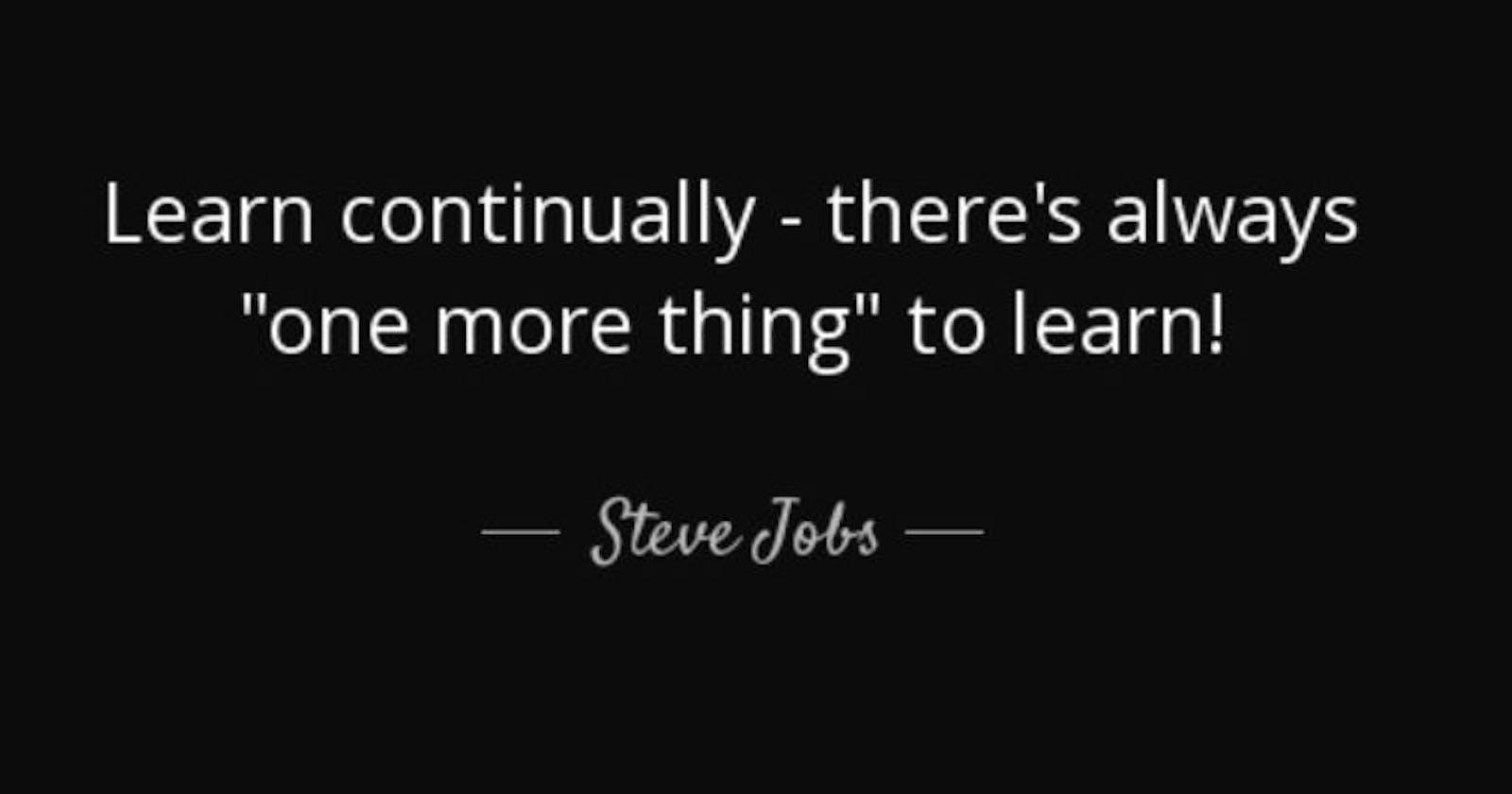As individuals who take initiatives to improve our abilities and become a better version of ourselves, our learning can become much more effective and faster if we develop an efficient learning process. Below is a list of principles which can help us in defining such processes:
The Principles
Learning vs Winning
- prioritize long-term learning over short term results
The Lesson to Learn by Paul Graham.
In theory you shouldn't have to prepare for a test in a class any more than you have to prepare for a blood test.
Success and obstacles
- you need drive and persistence
- embrace the early obstacles
- everyone was once a beginner
- important topics are not easy to learn
- failures are progress
keep a positive perspective. E.g. I'm not there yet but I will get there (by doing this).
Enjoy sucking at something at first
Quiting is ok
- it is possible that the path is not for you
it is important to know when to quit in order to find the things better suited to you.
Sometimes we have to know when to turn around and pick the right path in order to use our resources efficiently.
Compoud learning
learn in small chunks every day.
If you improve by 1% every day, in 70 days you're twice as good.
Your failures don't count against you
- People will not remember how many times you failed in the process.
- They only care about what you are now.
- You don't have to be successful a lot of times.
- Nobody cares about how many interviews you failed. They only care about the one you passed.
Do not avoid doing things because of fear of failure.
The more failures we have, the more feedback we will have for improvement
Choice vs Chore
- "I want to do this" over "I have to do this"
- learning is a choice like watching a tv show and not a chore like washing clothes.
Pareto principle
- 80/20 principle - 80% success comes from doing 20% of the work.
- achieve initial 80% as fast as possible
- define the 20% you need to do for it
Whenever you feel you're going overboard with a topic, ask yourself the below question
Is this the best use of my time?
Skill stacking - Career strategy
- don't lose your curiosity
- value learning in your decisions and practices
- gather and combine skills in unique ways
- develop many skills that work well together
- develop combinations that make you stand out
Happiness factors
- To be a good learner, first focus on being happy
- identify areas that make you feel happy . Examples:
- physical and mental health
- good sleep - to feel energetic
- learning everyday - gives a sense of achievement at the end of the day and keeps me motivated
- getting enough leisure time - to relax my mind
- having control over my work - stress management
Productivity time
- Find time of the day when you're most productive.
- Learn during that time.
- Do not start learning at that time of the day when you were otherwise not doing anything productive.
Happy Learning!!

You can connect with me at

